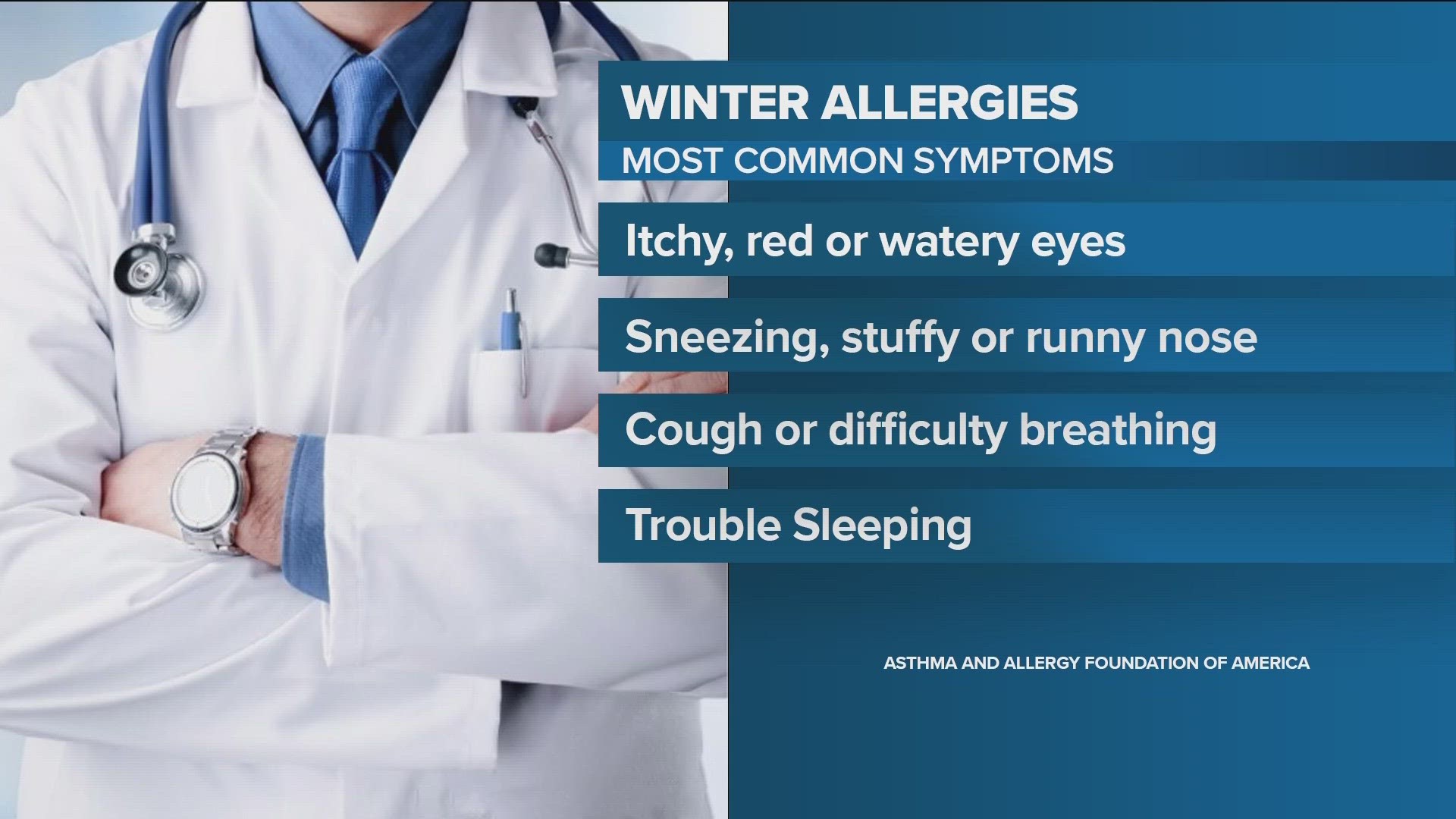SAN DIEGO — As the weather cools down and you head indoors, you may need to prepare for winter allergies.
According to the Asthma and Allergy Foundation of America, some of the most common winter allergy symptoms include:
• Itchy, red, or watery eyes
• Sneezing, stuffy or runny nose
• Cough or difficulty breathing
• Problems sleeping
"This time of year, we are seeing the highest amount of respiratory issues and infections," said Dr. Adam Johnson, an Emergency Medicine Physician at Sharp Grossmont Hospital.
CBS 8 spoke with Dr. Johnson as well as Dr. Jyotu Sandhu from Sharp Rees-Stealy to learn more about how to combat winter allergies this season.
"COVID and flu are kicking into high gear. I'm seeing more flu cases by the day in the office," said Dr. Sandhu.
Both doctors say indoor air can at times be worse than outdoor air.
"The problem with inside air is it is recycled multiple times on occasion, instead of fresh air outside, it will go in and out of the filters; it can have dust and bacteria. I suggest having more fresh air or changing your filters," said Dr. Johnson.
Cozy culprits like fireplaces and candles can actually intensify winter allergies.
"The problem is if you light a candle, that wax burning can have health side effects and that smoke will linger longer than expected and it can irritate the lungs," said Dr. Johnson.
Pet dander and insects are also bad news for air quality in your home.
"Cockroaches are far more allergenic," said Dr. Sandhu.
So what do these experts recommend?
• Use a humidifier to reduce dryness in the air, with a maximum humidity of 50%.
• Avoid wall to wall carpeting. It’s a favorable environment for dust mites and insects.
• Wash sheets weekly in hot water to kill dust mites.
• Bathe pets at least once a week to minimize animal dander.
Doctors also say to be aware of using artificial Christmas trees this holiday season.
Trees, decorations and lights are stored from year to year in attics and garages and can be prone to dust and mold.
"Fake Christmas trees can be made out of plastic that have chemicals and cause allergies. Be careful with plastics or fake trees. Be very careful and cognizant and stay healthy," said Dr. Johnson.
Watch related: Real or Fake | Which Christmas tree is better for the environment? (Nov 27, 2023)

